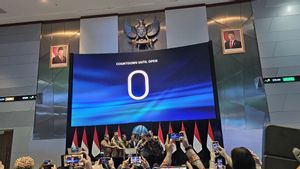JAKARTA - The Ministry of Industry (Kemenperin) encourages the Electromagnetic Compatibility (EMC) testing to ensure consumer protection.
This is done because the public's need for the use of electronic devices is increasing along with the current trends and advances in technology. Therefore, it is necessary for products that have been ensured to have a safe level so that consumers are protected.
Head of the Standardization and Industrial Services Policy Agency (BSKJI) of the Ministry of Industry, Doddy Rahadi, said that the EMC testing was one of the requirements contained in the Indonesian National Standard (SNI).
Doddy explained, EMC is the ability of an equipment or system to operate normally in an electromagnetic environment without being affected or producing interference with its environment.
"The EMC test is useful for knowing whether a technology product or device is capable of operating normally and safely for the surrounding environment," he said in a written statement, Tuesday, July 25.
Currently, the Surabaya Standardization and Industrial Services Center (BSPJI) as a Technical Service Unit (UPT) under the Ministry of Industry's BSKJI has an EMC laboratory, which is one of the largest laboratories in Indonesia.
The laboratory, which has been established since 2013, has a 10 meter Semi Anechonic Chamber specification that has been equipped with Radio Frequency (RF) testing for Bluetooth and Wi-Fi products.
"BSPJI Surabaya is here to answer industrial needs. The EMC laboratory at BSPJI Surabaya is able to test electronic and telematic equipment, such as drones, headphones, cellphones, handies (HT), wireless microphones, Bluetooth headphones, piano, television, and other electronic devices," said Doddy.
另请阅读:
Furthermore, said Doddy, the Ministry of Industry continues to strive to encourage the competitiveness of the electronics industry in the country, one way to do this is by imposing SNI and optimizing the level of domestic content (TKDN).
This step is considered to be able to secure domestic markets and maintain consumer safety against quality imported products.
"Through the optimization of TKDN, the implementation of SNI and other standards, market supervision and the availability of adequate electronic and telematic laboratory facilities, it is hoped that it can increase the competitiveness of domestic industries," he added.
The English, Chinese, Japanese, Arabic, and French versions are automatically generated by the AI. So there may still be inaccuracies in translating, please always see Indonesian as our main language. (system supported by DigitalSiber.id)
















